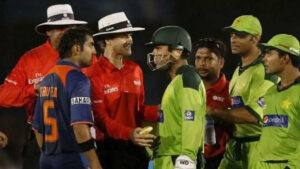Fantasy Sports and Sports Betting – Can Acceptance of the Former Shape the Latter’s Outlook in India?
The fantasy sports segment in India may have emerged on the scene only in the last few years, but it has changed the way Indians interact with sports. Platforms like Dream11 have given the common masses a chance to leverage their sports knowledge and make some money in the process.
However, the same can be done through the traditional model of online sports betting in India – still prevalent and more extensive than its fantasy counterpart – although it is still treated as a taboo. So the question remains – if fantasy sports and sports betting are two sides of the same coin, why can’t they be welcomed equally and regulated, and legalized along the same lines?
The Dream11 Rise – and it’s Grand Acceptance
In March 2020, fantasy sports platform Dream11 raised $400 million in a funding round, effectively shooting up its valuation to $5 billion. This is a 100% rise from its secondary valuation in September 2020, when the company raised $225 million to be then valued at $2.5 billion.
It is also worth mentioning that the meteoric rise in the popularity of Dream11 has given birth to several similar startups, all of whom are vying for a place in the Indian market. But, admittedly, Dream11 enjoys the highest market share, having reached 100 million users – a first for a fantasy sports firm in the country.
In case you are unaware of how fantasy sports work, here is a quick, four-step summary for you:
- You build a fantasy team consisting of the same number of players as the real-life sports team – be it cricket, football, basketball, kabaddi
- The team must consist of members from both participating squads in the real-life competition
- Points are awarded to each player depending on how they perform in a real-life match. For instance, a player scoring a half-century in cricket may get more points than a player who gets ducked out.
- The fantasy contest runs for the duration of the full sports match and no changes can be made to the team once the game is in progress
To win the competition, your fantasy outfit must accrue the most number of points in your ‘local league.’ Users can participate for free or play in cash contests – the latter requires an entry fee, and depending on how you fare, you may walk away with substantial monetary returns.
Apart from this engaging, intriguing business model, the wide acceptance of fantasy sports has also been possible because of its legal status. The Punjab and Haryana High Courts and the Supreme Court of India have ruled that fantasy sports are a game of skill – since it requires research and analysis rather than leaving it entirely to chance.
At this point, it is fair to say that fantasy sports in India are a self-sufficient segment, as pointed out in the market research paper titled, ‘Sports Betting, India’s Favourite Invisible Giant‘ by ENV Media.
But Sports Betting is Where the Mad Money Lies
In the paper mentioned above, it has been said that the size of the sports betting market in India – which is unregulated, untaxed, and largely underground, is upwards of $100 billion, growing at 7% every year. Similar statistics can also be found in a KPMG report exploring the landscape of sports gaming in India, which says the Indian betting market is valued upwards of $130 billion as of 2018. The report even mentioned that as much as $200 million is wagered on every one-day international cricket match played by India – half the funding secured by Dream11 in its latest round.
Clearly, there are a lot of reasons to regulate the online betting arena. For one, the tax potential is massive. Given that millions and millions of dollars are flowing outwards to overseas casinos and underground punters, regulating a market like this can bring in additional tax revenues for the government.
Secondly, the regulation also paves the way for protecting the interest of the consumers. The number doesn’t lie – people love betting on cricket online, but they are doing so in spaces that are not governed, regulated, and, more importantly, do not have the means to tackle addiction and gambling problems.
In this regard, the Netherlands has done well to allow foreign operators to offer their services in the country, provided they hold a license offered by Dutch Gaming Authority/KSA. The permission to operate is granted to those transparent operators with a solid infrastructure to tackle addiction and gambling behavior.
Thirdly, legalizing and regulating sports betting also eliminates corruption in sports and reduces the chances of match-fixing. Keeping an eye out for abnormal, erratic, and out-of-the-ordinary transactions across the betting sites makes it easier to weed out the rogue elements and create a safer, enjoyable space for online betting.
Parting Thoughts
Sports betting and fantasy betting are not that different. If anything, to accept one and not the other is a paradox in itself. You see, the game’s outcome in the fantasy league is based on the actual performance of the athletes in real-time. Yet, it is possible to wager money on these selections within the league on the fantasy platform but not do so directly on the performance of the teams/players on a regular sports betting website. However, the debate has now started, and we can only hope it is a matter of time before the policymakers and authorities join the first-world nations in regulating the sports betting space.







